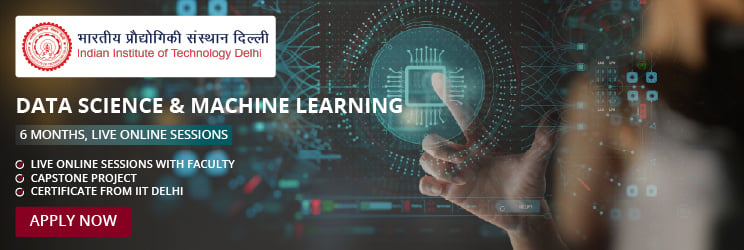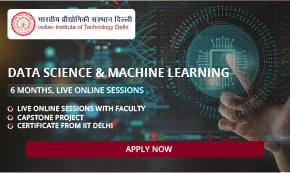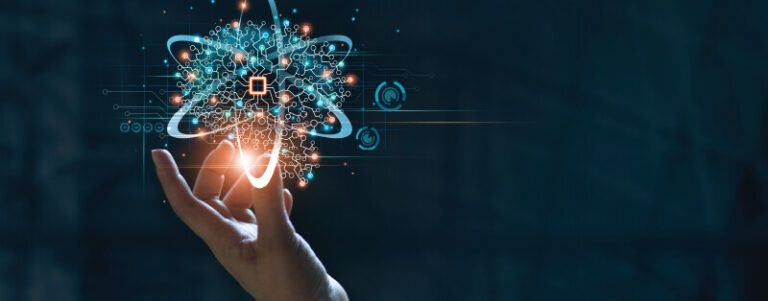Top 13 Python Interview Questions and Answers to Crack Your Next Python Job

- Common Python Interview Questions and Answers
- Object-Oriented Programming (Oops) Interview Questions and Answers
- Basic Python Interview Questions and Answers
- Python Library Interview Questions and Answers
- Top Three Thrilling Career Jobs Opportunities in Python
- Take the Data Science Career to the Next Level
Be it a fresh graduate or an experienced professional, everyone wants to enter a field that has ample growth opportunities and an attractive salary package. So, information technology or IT is one such field.
Significantly, a recent report reveals that the revenue of India’s IT sector including hardware is projected to cross $245 Bn (8.4% y-o-y growth) and is expected to grow in the future.
Therefore, if you are a computer science graduate or an experienced professional seeking a job opportunity in IT, you need to have a strong knowledge of different programming languages like Python, C, C++, and Java for a successful career.
So, among all the programming languages, Python is one of the top programming languages. It is because it can be used in a wide range of applications. Therefore, in an IT or data science interview, the recruiters will ask questions related to Python to test your knowledge.
Here, let’s unfold the list of frequently asked Python interview questions and answers. Moreover, the list has questions on Python basics that are divided into four categories, namely:
- Common interview questions
- OOPS interview questions
- Basic Python interview questions
- Python libraries interview questions
Common Python Interview Questions and Answers
1# What Are the Key Characteristics of Python?
Here are some of the key features of Python:
- Python is an interpreted language. That means every code in Python is executed line by line and not converted into a machine language like complied language. In simple words, Python reads code line by line and generates output based on the code. Therefore, if it finds an error in the line, it stops running and generates an error statement. Therefore, this makes it easy to fix errors.
- Secondly, different applications use Python. For instance, python is used in web applications, big data applications, and more.
- Thirdly, Python supports integration and collaboration. Since Python is an interpreted language, it takes time to generate output because it reads code line by line. However, it allows the usage of C-based extensions to avoid bottlenecks and generate results faster.
2# What Is a Dictionary in Python?
In Python, dictionaries store items in a pair of keys and values. A key is a unique identifier for an item, and a value is data associated with the key. Moreover, Python dictionaries are also used to store information such as words, definitions, and more.
So, Python dictionaries are mutable that is they can be modified after creating them.
3# What Are Python Libraries and Name Some of Them?
 A Python library is a collection of precompiled codes that can be used for different programs. So, these codes reduce the work of the developer. Therefore, it makes it easy for developers to use programming languages for different operations.
A Python library is a collection of precompiled codes that can be used for different programs. So, these codes reduce the work of the developer. Therefore, it makes it easy for developers to use programming languages for different operations.
Moreover, Python libraries play a critical role in machine learning, data science, and visualization. Here are some of the popular Python libraries.
- TensorFlow is an open-source library used in high-level computation or machine learning and deep learning applications. It contains many tensor operations that can be used to solve complex mathematical and physics computations.
- Matplotlib is used in data analysis for plotting numerical data.
- Data scientists use Pandas for dealing with big data. It eases data manipulation, cleaning, and analysis of data.
- Numpy is a popular machine-learning library that supports multi-dimensional data. It consists of mathematical functions that are used for easy computation. The name Numpy stands for Numerical Python.
- Scikit-learn is used while working with complex data. It is an open-source library that supports various machine-learning applications. Supervised and unsupervised algorithms like linear regression, classification, and clustering use scikit-learn.
4# How Are Lists and Tuples Different From One Another?
Lists and Tuples are two classes of Python data structure. A list is dynamic and can be modified. On the hand, tuples are static and cannot be modified. Here’s a detailed view of how lists and tuples are different from each other.
| LIST | TUPLE |
| Lists are mutable, that is they can be edited | Tuples are immutable, that is they cannot be edited |
| Lists are used for performing operations functions, such as insertion and deletion | Secondly, Tuples are used for accessing the elements of data |
| Lists have many built-in methods and applications | Tuples don’t have any built-in applications or methods |
5# What Is the Difference Between Range and Xrange?
Range and xrange are two functions that generate integer numbers from a given start and stop value. In Python 2 (an updated version of Python) these two methods are used to generate a list of integers from a given value.
Although range and xrange serve the same purpose, they have different traits. It shows in their performance, memory consumption, and speed.
Object-Oriented Programming (Oops) Interview Questions and Answers
Python is an object-oriented language, which means it uses objects and classes in its codes. OOPs, or object-oriented programming is an approach that designs programs using classes and objects from the real world. It uses real-world entities like inheritance and encapsulation to solve problems.
Since Python is an objected-oriented language, there are chances that the interviewers will ask OOPs-based interview questions. Thus, here we have listed the top three OOPs interview questions and their answers.
6# What Is Inheritance in Python?
Inheritance is the ability of one class to inherit all the attributes and methods of another class. So, it enables the reusability of code.
Moreover, the class that got inherited is called the super class or parent class. Meanwhile, the class that inherits the parent class attributes is called a derived or child class.
7# What is Polymorphism in Python?
Polymorphism is one of the fundamental concepts in OOPs. It refers to the ability of an attribute to take multiple forms.
In Python, the term is used to categorize attributes of the same name but with different features. For instance, if the parent class has a method called ABC, the child can also use the same method with the same name but different variables and parameters.
8# What Is Encapsulation in Python?
Encapsulation is an important concept of OOPs. It is defined as the process of combining data and methods to form one unit.
Class is one of the best examples of encapsulation. It wraps all data with similar features and characteristics into one category.
Basic Python Interview Questions and Answers
Python has emerged as one of the most popular programming languages of recent times. Because of its simplicity, versatility, and wide range of applications. Often, recruiters ask questions related to the practical application of Python. Here, we have listed the top three basic Python interview questions that are mostly asked by recruiters.
9# How Is Memory Managed in Python?
Python memory manager undertakes all the memory management activities in Python. It stores all Python objects and structures in the form of private heap space. This space remains private and inaccessible to the programmer. There’s also a garbage collector that takes care of the unused memory from the private heap space.
10# What Are Decorators in Python?
Decorators are design patterns in Python that modify the functionality of an existing function without changing its structure or attribute. It is represented as ‘@decorator_name’ in Python.
11# What Are Python Namespaces, and Why Are They Used?
Python namespaces assign names to objects of a program, making it easy to identify them (objects) by their name. It uses namespaces as a dictionary with name as the key and object as the value.
Python Library Interview Questions and Answers
12# What’s the Difference Between Django, Pyramid, and Flask?
Django, pyramid, and flask are Python frameworks for web development. It includes packages and modules that allow developers to manage websites easily. Here’s how they are different from each other.
Flask is a microframework built for small applications with simple requirements. It can also be used for accessing external libraries.
Pyramid, on the other hand, is built for large applications. It is flexible and lets the developer choose the right tools for the project. The developer can choose the database, URL structure, and more.
Django can be used for large applications. It includes ORM or object-relational mapping.
13# What Does the Django Template Consist Of?
Django templates consist of simple text files in XML, CSV, and HTML formats. They are an important part of Django, and it ensures that web pages work efficiently and dynamically.
Top Three Thrilling Career Jobs Opportunities in Python
Learning Python can open doors to exciting career opportunities in data science and analytics. Thus, it also presents opportunities to secure jobs with high salary packages. Here are the top three jobs you can take up after learning Python. Apart from these, you can also take up jobs as a Cybersecurity analyst, Software developer, and Full stack developer.
1. Data Scientist
A data scientist is a trained professional responsible for collecting, sorting, analyzing, and interpreting a vast amount of data. So, the national average salary of a data scientist in India is in the range of INR 12,00,000 to INR 25,00,000 per annum.
Henceforth, to make a successful career as a data scientist you will need to master skills like data visualization, data cleaning, machine learning, mathematics, and excel.
2. Python Developer
Python developer is an individual with in-depth knowledge of the programming language. Henceforth, they undertake functions like writing reusable codes, building websites, optimizing data algorithms, solving data analytics problems, and implementing security and data protection.
So, in India, Python developers earn in the range of INR 4,35,000 to INR 10,00,000 on average yearly.
3. Machine Learning Expert
A machine learning expert is a professional who makes machines capable of understanding information. It increases the ability of machines to pick up vital information and solve complex problems without human intervention.
The primary goal of a machine learning expert is to develop machine applications and enable machines to perform tasks without any intervention. Moreover, machine learning experts are quite similar to data scientists as they both work with high-volume data and have strong data management and analytical skills.
So, in India, machine learning experts earn in the range of INR 5,97,750 to INR 6,45,000 on average annually.
Salary Source: Glassdoor
Take the Data Science Career to the Next Level
Python is a universally accepted programming language. And if you are going for an IT or data science interview, it’s important to revise the basics of Python programming. Thus, the above-mentioned Python interview questions and their answers can be the starting point of your interview preparation.
So, are you planning to develop a career in data science? Then, take a certificate course in data science or analytics to upskill and train in the world’s most in-demand programming skills.
Emeritus has partnered with renowned institutes like IIT, IIM, and ISB to offer data science courses that enable you to leverage artificial intelligence and machine learning for automation and gain a competitive advantage over others.







